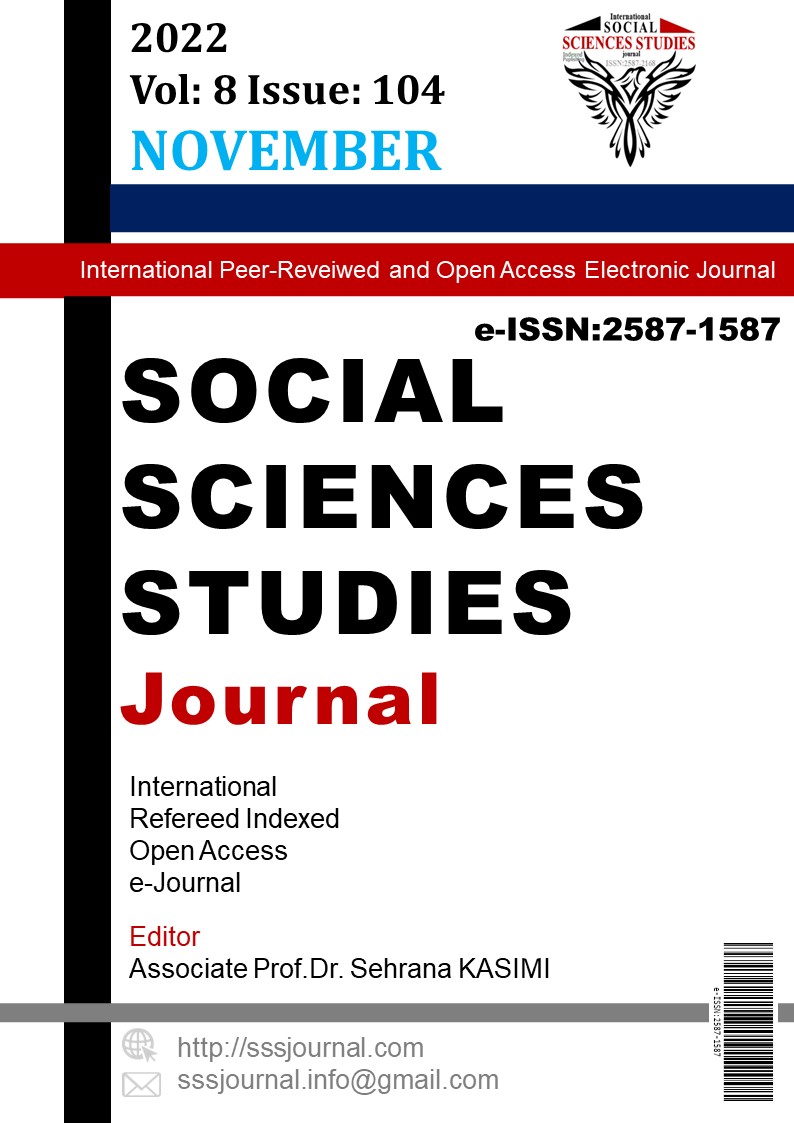Author :
Abstract
Bu çalışma Türkiye’de izlenen sanayi politikaları ile bu ulusal politikaların çalışma alanı olan Gaziantep’teki sanayi sektörüne yansımalarını tarihsel süreçte ortaya koymayı amaçlamaktadır. Bu doğrultuda, ülkedeki sanayi politikaları yazılı kaynaklar üzerinden ve literatür taraması ile incelenmiştir. Sanayi politikalarının Gaziantep’teki yansımaları ise, öncü sanayi sektörleri, ulusal politikaların sektörel bazda etkileri, kentin sanayisine yönelik resmi kurum verileri ile yazılı ve görsel basın kaynakları üzerinden incelenmiştir.
Türkiye’de sanayi politikaları, Osmanlı Dönemi’nde alınan kararlar ve ülkeler arası yapılan anlaşmalarla şekillenmeye başlamış ve bugüne ulaşan süreçte değişiklikler göstererek devam etmiştir. Cumhuriyet’in ilanı ile ekonomik alanda kalkınmanın lokomotifi olarak görülen sanayi sektörünün gelişimine özel bir önem gösterilmiş ve yasal düzenlemeler yapılmıştır. 1923 yılında İzmir İktisat Kongresi ile başlayan süreç, zaman içerisinde değişerek şekillenmiştir. Gaziantep ise, Osmanlı Dönemi’nden itibaren İpekyolu potansiyeli ve konumu ile ticaret geleneğine ve özellikle gıda ile dokuma alanlarında imalat geleneğine sahiptir. Ulusal sanayi politikasının ve yatırımların devlet eliyle yürütüldüğü Cumhuriyetin ilk yıllarında bile, ildeki sanayi gelişimi yerel halkın kendi imkânları ile yaratılmış ve sanayi faaliyetleri süreç içerisinde gelişerek bugüne ulaşmıştır. Hâlihazırda Gaziantep il genelinde farklı büyüklüklerde dört adet OSB ve on adet KSS bulunmaktadır. İl merkezindeki sanayi faaliyetleri ise, beş etaba ve 4295 ha alana sahip Başpınar OSB’de, yaklaşık 225 ha alana sahip KSS’de ve sanayinin kentteki ilk yerleşim yerleri olan Nizip Caddesi ile Ünaldı Bölgesi’nde devam etmektedir.
Keywords
Abstract
This study aims to reveal the industrial policies followed in Turkey and the reflections of these national policies on the industrial sector in Gaziantep, which is the study area, in the historical process. In this direction, industrial policies in the country have been examined through written sources and literature review. The reflections of industrial policies in Gaziantep are examined with the leading industrial sectors, the effects of national policies on a sectoral basis, official institution data for the city's industry, and written and visual media sources.
Industrial policies in Turkey began to be shaped in the Ottoman Period by the decisions and the agreements made between countries, and continued with changes in the process reaching today. With the proclamation of the Republic, special attention was paid to industrial development, which is seen as the locomotive of economic development, and various legal regulations were made. The process, which started with the Izmir Economy Congress in 1923, has changed and shaped over time. Gaziantep, on the other hand, has a trade tradition with its Silk Road potential and location since the Ottoman Period. It also has a manufacturing tradition, especially in the fields of food and weaving. Even in the first years of the Republic, when the national industrial policy and investments were carried out by the state, the industrial development in the province was created by the local people's own means, and the industrial activities developed in the process and reached today. Currently, there are four OIZs and ten SISs of different sizes throughout the province of Gaziantep. Industrial activities in the city center continue in Başpınar OIZ with five stages and an area of 4295 hectares, in KSS with an area of approximately 225 hectares, and in Nizip Street and Ünaldı Region, which are the first settlements of the industry in the city.
Keywords
- 1. Akdeve, E. & Karagöl, E. T. (2013). “Geçmişten Günümüze Türkiye'de Teşvikler ve Ülke Uygulamaları”, Dumlupınar Üniversitesi Sosyal Bilimler Dergisi, (37):329-350.
- 2. Akpınar, R. (2013). “Türkiye’de Değişen Bölgesel Kalkınma Politikaları”, Karadeniz Sosyal Bilimler Dergisi, 4(6):29-46
- 3. Arısoy, İ. (2005). “Türkiye’de Sanayileşme ve Temel Göstergeler Açısından Sanayinin Gelişimi”, Çukurova Üniversitesi Sosyal Bilimler Enstitüsü Dergisi, 14(1):45-67.
- 4. Ay, S. (2012). “Türkiye’de işsizliğin Nedenleri: İstihdam Politikaları Üzerine Bir Değerlendirme”, Yönetim ve Ekonomi Dergisi, 19(2):321-341.
- 5. Ayhan, A. (2002). Dünden Bugüne Türkiye’de Bilim-Teknoloji ve Geleceğin Teknolojileri, Beta Yayınları, İstanbul.
- 6. Barışık, S., Yirmibeşcik, O. (2006). “Türkiye’de Yeni Ekonominin Oluşum Sürecini Hızlandırmaya Yönelik Uyum Çabaları”, Uluslararası Yönetim İktisat ve İşletme Dergisi, 2(4):39-62
- 7. Baştav, L. (2012). “Dışa Açık Büyüme Modelinde Sanayi Politikalarının Gelişimi: Türk İmalat Sanayiinin Yapısı Ve Rekabet Gücü (1980-2011)”, ODTÜ Gelişme Dergisi, 39 (Aralık):303-322
- 8. Boratav, K. (1990). Türkiye İktisat Tarihi 1908-1985, Gerçek Yayınevi, İstanbul.
- 9. Boratav, K. (2003). Türkiye İktisat Tarihi, İmge Kitabevi, Ankara.
- 10. Ercan F., Karakaş D., Tanyılmaz K. (2008). “Türkiye’de Sermaye Birikimi, Sanayileşme Politikaları Ve Sektörel Değişimler” (Ed. Gülen Elmas Arslan), Çeşitli Yönleriyle Cumhuriyetin 85’inci Yılında Türkiye Ekonomisi, ss.213-252, Gazi Ankara Üniversitesi, Ankara.
- 11. Erman, T. (2013).” Küresel ve Yerel Dinamikler Altında ‘Anadolu Kaplanı’ Kentleri”, İdealkent, 4(8), 50-73.
- 12. Gökçen, A. (2011). “Kalkınmada Öncelikli Yörelerde Uygulanan Gelişme Politikaları”, İstanbul Üniversitesi İktisat Fakültesi Mecmuası, 45 (1-4).
- 13. Kepenek, Y., Yentürk, N., (2001). Türkiye Ekonomisi, Remzi Kitabevi, İstanbul.
- 14. Oğuztürk, B. S. (2004). “Türkiye’de Uygulanan Teknoloji Politikaları”, Fırat Üniversitesi Doğu Araştırmaları Dergisi, 2 (2) , 100-105 .
- 15. Öge Güney, P., Akbay, O. S. (2008). “Avrupa Birliği’nin Sanayi Politikası ve Türk Sanayisine Etkileri”, Uluslararası Yönetim İktisat ve İşletme Dergisi, 4 (7), 145-160.
- 16. Polat, H., (2011). “Türkiye Ekonomisinde İmalat Sanayi”, Dicle Üniversitesi İktisadi ve İdari Bilimler Fakültesi Dergisi, 1 (2), 24-39.
- 17. Rodrik, D. (2007). “Türkiye İçin Sanayi Politikaları”, TÜSİAD-Koç Üniversitesi Ekonomik Araştırma Forumu, İstanbul.
- 18. Saygılı, Ş., Cihan, C., Yurtoğlu, H. (2005). Türkiye Ekonomisinde Sermaye Birikimi, Verimlilik ve Büyüme: 1972-2003, DPT Ekonomik Modeller ve Stratejik Araştırmalar Genel Müdürlüğü, Ankara.
- 20. Şahin, H., (2006). Türkiye Ekonomisi, Ezgi Yayınları, Bursa.
- 21. Şanlı, B. (1997). Sanayileşme Stratejileri ve Türk Dış Ticareti, Işık Yayınları, İstanbul.
- 22. Türel, O. (2007). “Türkiye’de Sanayi Politikalarının Dünü ve Bugünü”, TMMOB Sanayi Kongresi, 4 Aralık 2007, TMMOB adına Makina Mühendisleri Odası, Ankara.
- 23. Varol, G. M. (2003). “Cumhuriyetin 80. Yılında 1923-2003 Türk Dış Ticaretinin Gelişiminin Kısa Tarihçesi”, Dış Ticaret Dergisi, Özel Sayı(Ekim 2003), s. 159-161.
- 24. Yılmaz, M., (2017). 1990 Sonrası Türkiye Ekonomisinde Uygulanan Sanayi Politikaları,
- 25. URL:https://www.researchgate.net/publication/335336337_1990_SONRASI_TURKIYE_EKONOMISINDE_ UYGULANAN_SANAYI_POLITIKALARI (Erişim tarihi: Ağustos, 2022).
- 26. Yücel, İ. H. (1997). Bilim-Teknoloji Politikaları ve 21. Yüzyılın Toplumu, DPT, Ankara.
- 27. Yücel, İ. H. (2006). Türkiye’de Bilim Teknoloji Politikaları ve İktisadi Gelişmenin Yönü. DPT, Ankara.





